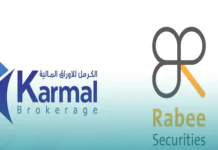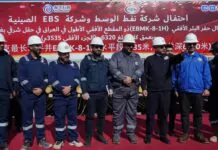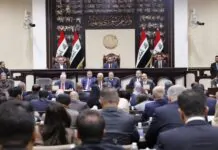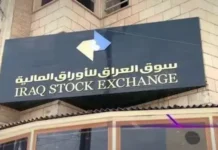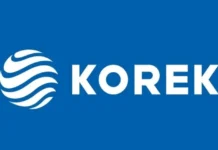Tishwash: Central Bank: Gold reserves reach 170 tons, with intention to remove zeros from dinar
The Central Bank of Iraq announced, on Tuesday, October 14, 2025, its gold reserves and its intention to remove zeros from the Iraqi currency.
Deputy Governor of the Central Bank, Ammar Khalaf, said in a press statement, followed by Baghdad Today, that: “The Central Bank of Iraq has increased its gold holdings from 90 tons to 170 tons at the present time.”
Khalaf added, “This amount of gold now constitutes 20% of the Central Bank’s total assets, and Iraq currently ranks fourth in the Arab world in gold holdings and 29th globally.”
The Deputy Governor of the Central Bank confirmed that “there is no intention to float the Iraqi dinar exchange rate, so as not to affect the stability of the economy at the present time.”
Khalaf revealed that “there is an intention to remove zeros from the Iraqi dinar to ease the burden of banknote hoarding on the financial sector.” link
Tishwash: Al-Sudani’s advisor identifies the reasons for the global rise in gold and reveals the value of Iraq’s reserves.
On Tuesday, advisor to the Iraqi Prime Minister, Mazhar Mohammed Salih, revealed the reasons for the rise in global gold prices, noting that Iraq diversifies approximately 15% of its foreign currency reserves into gold.
Saleh told Shafaq News Agency, “There is a violent cycle of strategic asset cycles in the world, led by gold, which has broken the $4,000 barrier per ounce.” He indicated that “the dollar has remained the dominant currency in dollar trade settlements since 1971 until today, dominating nearly 83% of the international payments system and about 50% or more of countries’ official reserves.”
He added, “Despite this, gold remains a standard component of diversifying the investment portfolios of central banks, including Iraq, which diversifies approximately 15% of the value of its foreign exchange reserves into gold. This conservative diversification is considered good in light of the fluctuations in foreign exchange value risks.”
According to Saleh, “The reasons for the rise in gold prices, which has led to increased demand, are due to the fact that gold is considered a safe haven in a turbulent global system,” noting that “geopolitical tensions (Ukraine, the Middle East, Taiwan, etc.) have increased market risks, prompting central banks and investors to turn to gold as an asset that is not dependent on political confidence.”
He emphasized that “the erosion of confidence in the US dollar due to the rise in the US federal debt and the politicization of the use of the dollar in international sanctions has prompted many countries (especially China, Russia, India, Turkey, and a number of others) to diversify their reserves away from the US currency.”
Saleh continued, “Gold has emerged as a monetary alternative in the post-dollar system. Since 2022, BRICS countries and countries of the Global South have been moving towards rebuilding their gold reserves as part of their strategy to reduce reliance on the dollar in inter-trade. China, in particular, purchased more than 300 tons of gold through the Shanghai Stock Exchange in 2024 to bolster the gold yuan and cover part of its non-dollar reserves, and it continues to do so to a large extent.”
Al-Sudani’s advisor continued, “Gold is not treated as an ordinary commodity, but rather as a parallel reserve currency in the making, as it is considered relevant to global monetary policies. Declining expectations of a US interest rate cut have prompted investors to turn to gold, which undoubtedly retains its value as a safe haven.”
Saleh concluded by saying, “The main reason behind the rise is China’s recent rush to buy gold to propel its currency into the global currency club at the required speed, reinforced by the strategic asset of gold. This is the reason behind the rise in global gold prices, as it is the beginning of a currency war between China and the United States, and China versus the trade war between them, and the United States’ threat to raise tariffs to 100% with China.”
Gold prices have skyrocketed in Iraq over the past period, with the selling price of a 21-karat mithqal of gold in Baghdad’s goldsmith shops reaching 820,000 dinars, while the selling price of a mithqal of Iraqi gold ranged between 780,000 and 790,000 dinars. In Erbil, the capital of the Kurdistan Region, 21-karat gold sold for 833,000 dinars, and 18-karat gold sold for 715,000 dinars. link
************
Tishwash: The Article 140 Implementation Committee informs the citizens
The committee to the citizens: Complete the deficiencies of your transactions in a week
The Article 140 Implementation Committee has issued a notice calling on all citizens whose transactions remain incomplete to visit the centers where they have previously completed their transactions within a week, in order to complete their work as soon as possible; The notice also applies to citizens whose transactions are incorrect.
The Article 140 Implementation Committee issued a notice on its social networking site on Monday, October 13, 2025, saying that after the completion of all transactions will be sent to the accounting department for the purpose of issuing compensation cheques.
Regarding the working hours of the committee stations, he explained that citizens can visit the stations on Saturdays from 8 am to 2 pm, but from Sunday to Thursday, from 8 am to 4 pm in all provinces and cities and towns will welcome citizens.
In this regard, Kakarash Sadiq, head of the Kirkuk office of Article 140 told Kurdistan 24, this is an administrative measure, the purpose is to complete the transactions of citizens who have problems in their transactions, preparations for the payment of compensation.
He added that more than 5,000 transactions of citizens remain, there are shortcomings and citizens should visit the centers of the Article 140 committee and complete their transactions within the period specified by the committee.
He said there are about 60,000 single-form transactions, which were displaced from the villages to the cities, this decision applies to them, who must visit the committee’s bases to carry out their work.
Regarding the citizens who have received compensation cheques, Kakarash Sadiq said that 42,000 Kurdish citizens and 18,000 imported Arabs have been compensated, and those who remain are expected to be given compensation checks after the parliamentary elections and the approval of the annual budget. link

